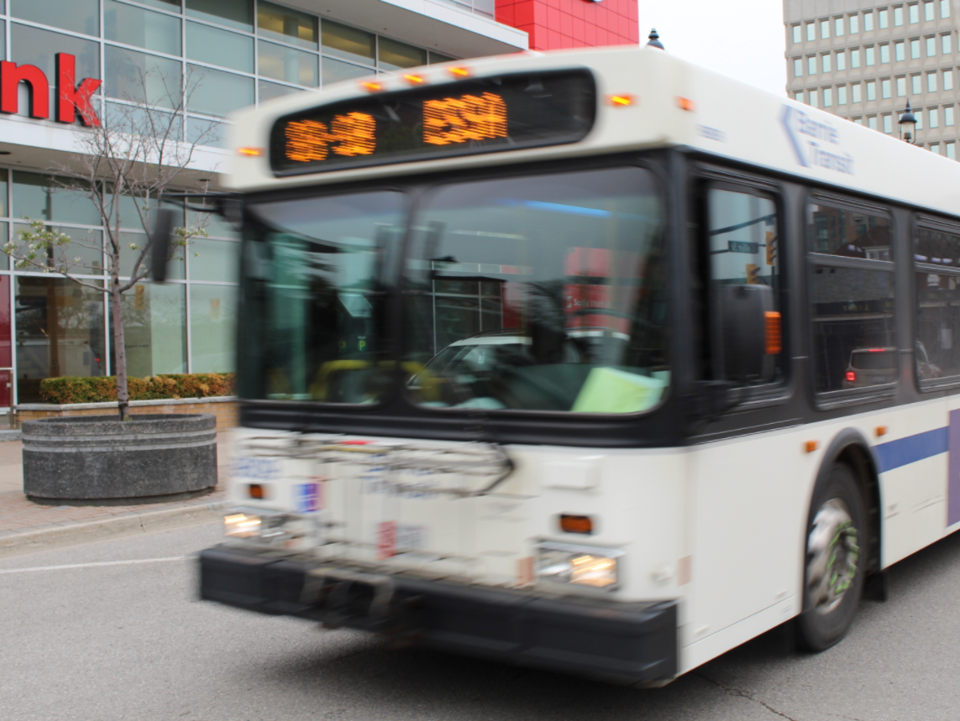Get set for better Barrie Transit service later this summer.
City council decided Monday night to restore 30-minute service on four bus routes, at a cost of $450,000 funded from the 2022 provincial gas tax (two cents a litre at the pumps) reserve, in late August or early September.
Coun. Keenan Aylwin listed climate change, high fuel prices, affordability and employment as the reasons for switching from 60-minute service on Barrie Transit Routes 2, 3, 4 and 7 — the only ones of reduced services from the pandemic.
“We know that cutting transit service will hurt working people who rely on transit to get work the most,” he said. “We need to be doing everything we can to invest in transit. We should be investing more in transit, not actually cutting back service.”
“We’re never going to build ridership on our bus system by cutting service, only by improving service,” said Coun. Clare Riepma.
Aylwin’s direct motion, which received unanimous support from councillors, came after city staff said there were no plans to return to pre-pandemic transit service levels this year. Ridership is at 85 per cent of pre-pandemic levels, although the total cumulative number hours of buses in service is back to about 90 per cent.
But Coun. Sergio Morales said public transit is a matter of necessity.
“When you’re driving a car and gas prices go up, it’s annoying and maybe you drive less,” he said. “When you don’t have a car, you don’t have any choice (but to take the bus). We’re really impacting people who rely on this just not for lifestyle, but for jobs. So that hour to half an hour might make a difference.”
Right now, Barrie Transit ridership is about 9,000 trips a weekday — while pre-COVID it was 10,500, said Brent Forsyth, the city’s director of transit and parking. In fall and winter, again pre-COVID, it was 12,000 trips per weekday, in part because of Georgian College students.
Barrie Transit’s net operating expenses this year are budgeted at just more than $14 million.
“With inflation probably at an all-time high, and fuel prices basically doubling, we are projecting a significant increase in our budget next year,” Forsyth said.
Staff were tentatively planning to have Routes 2,3, 4 and 7 back to pre-pandemic levels in the fall of 2022, but the uncertain financial outlook due to rising inflation and record-high gas prices had postponed this service level.
Maintaining reduced service levels would have helped offset city budget pressures for 2023, according to city staff.
Funding which allowed Barrie Transit to break even during the pandemic is also running out. Provided by both the federal and provincial governments to allow transit to run at reduced service levels without impacting taxpayers, there’s no indication of additional funding from those upper levels of government to support ongoing revenue shortfalls, high fuel costs or the extreme inflation the city is facing.
By the close of 2022, when Safe Restart funding ends, the city is estimated to have received approximately $5.3 million to support transit services throughout the pandemic.

